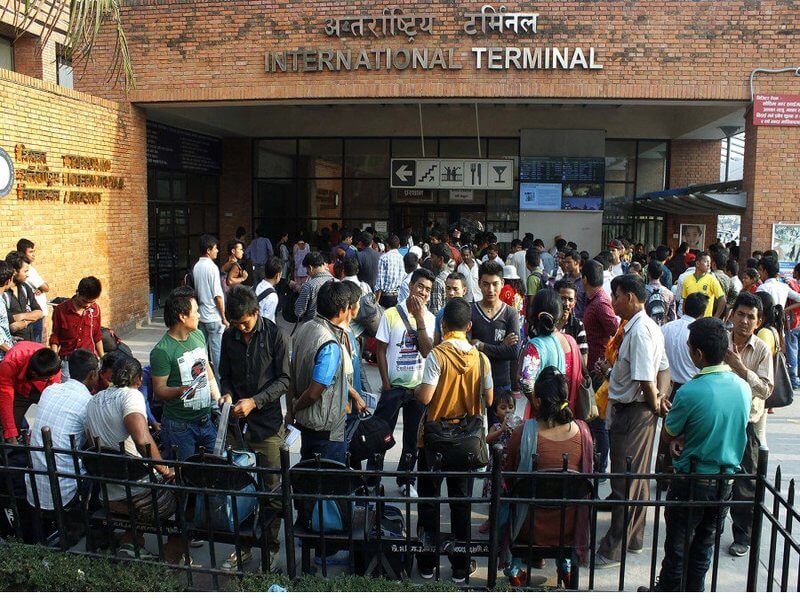Saturday 27th July 2024

The coronavirus pandemic has drastically disrupted the lives of Nepali migrant workers stranded in various foreign countries as economic uncertainty looms across the world.
A vast majority of Nepali migrant workers are hankering to return home as there is no much scope to survive in the destination countries due to the pandemic.
According to the ‘Rapid Assessment of the Situation of Nepali Migrant Workers’ conducted in 8 primary destination countries including India, Malaysia and Gulf countries revealed that 80% of the migrant workers are longing to return home.
They expressed their interest to engage in self-employment in agricultural and non-agricultural sectors.
The remaining 20% are interested to engage in wage-employment in agriculture or non-agricultural sectors.
Although the Nepali Government has prioritized policies and programs for returnees in the annual budget of FY 2020/21, the rapid assessment revealed that staggering 70% of the respondents are completely unaware of these programs. Meanwhile, an extremely low 2% knew how to get access to them.
While most of the migrant workers are aspiring to return home, many are perplexed to return owing to the uncertainty in employment opportunities and rapid spread of COVID-19 infection in Nepal.
“Returning to Nepal would mean navigating the complicated repatriation process, paying the expensive airfare, spending two-weeks in poorly-equipped quarantine centers, and potentially facing further lockdowns in Nepal,” stated the survey.
The survey also revealed the pathetic conditions of the migrant workers living abroad. According to the report, 58% are concerned about getting infected due to poor working conditions, while 17% are concerned about their living conditions.
The study revealed that the local governments should establish a database of returnees and facilitate their social and economic reintegration.
It urged the government to ensure that vulnerable groups such as undocumented migrant workers are rescued and not left out in the reintegration process and programs funded by the Foreign Employment Welfare Fund (FEWF).
“This issue is of importance as workers may have traveled irregularly without obtaining labour approvals or overstayed their visas abroad without renewing their labour approvals in a timely manner, but are now returning home and require support,” stated the rapid assessment report.
The Nepal Policy Institute (NPI) and Migration Lab (MLab) had jointly conducted the Rapid Assessment on 625 Nepali migrant workers.